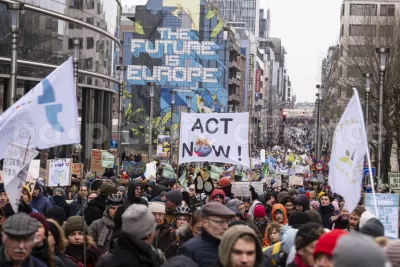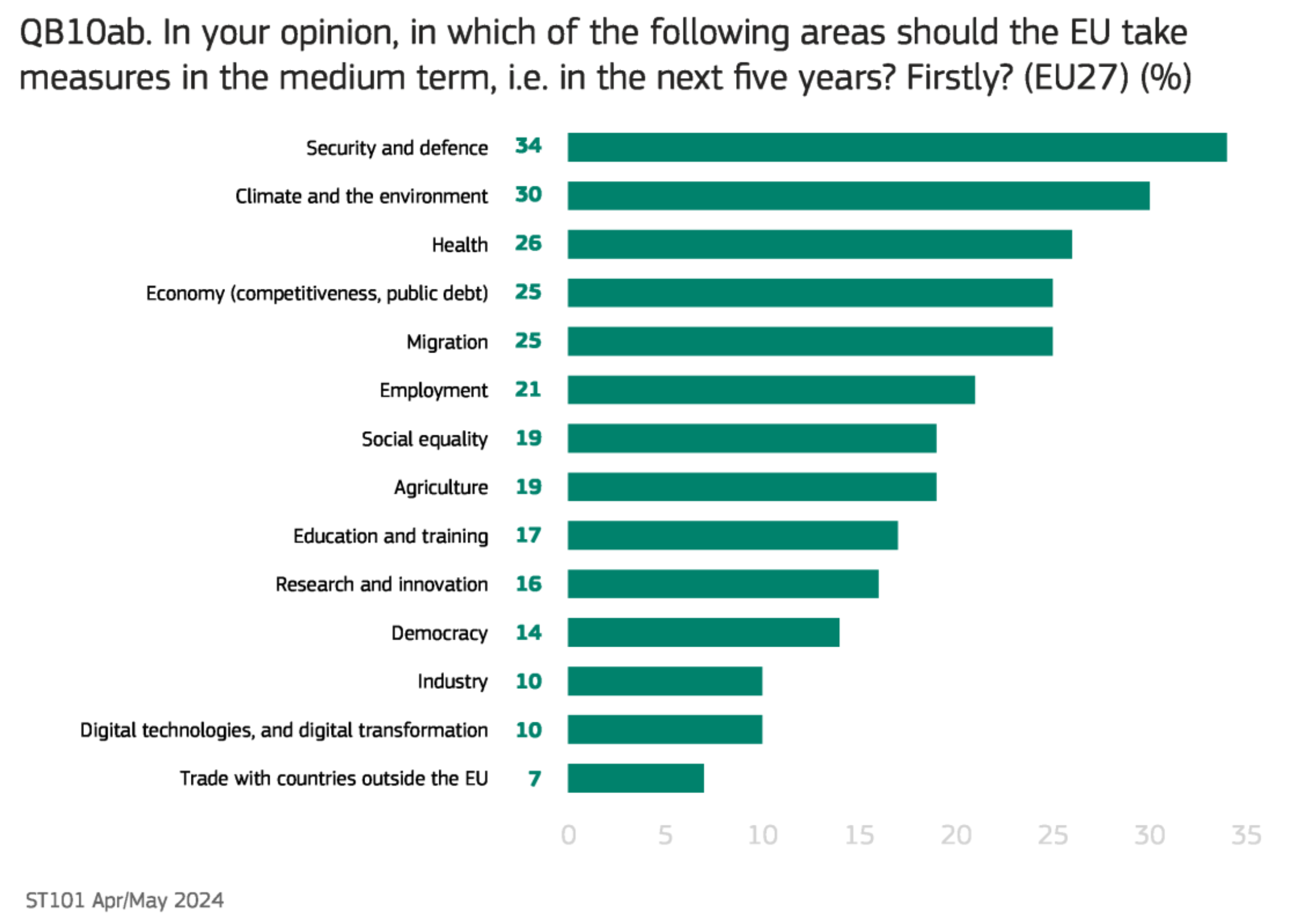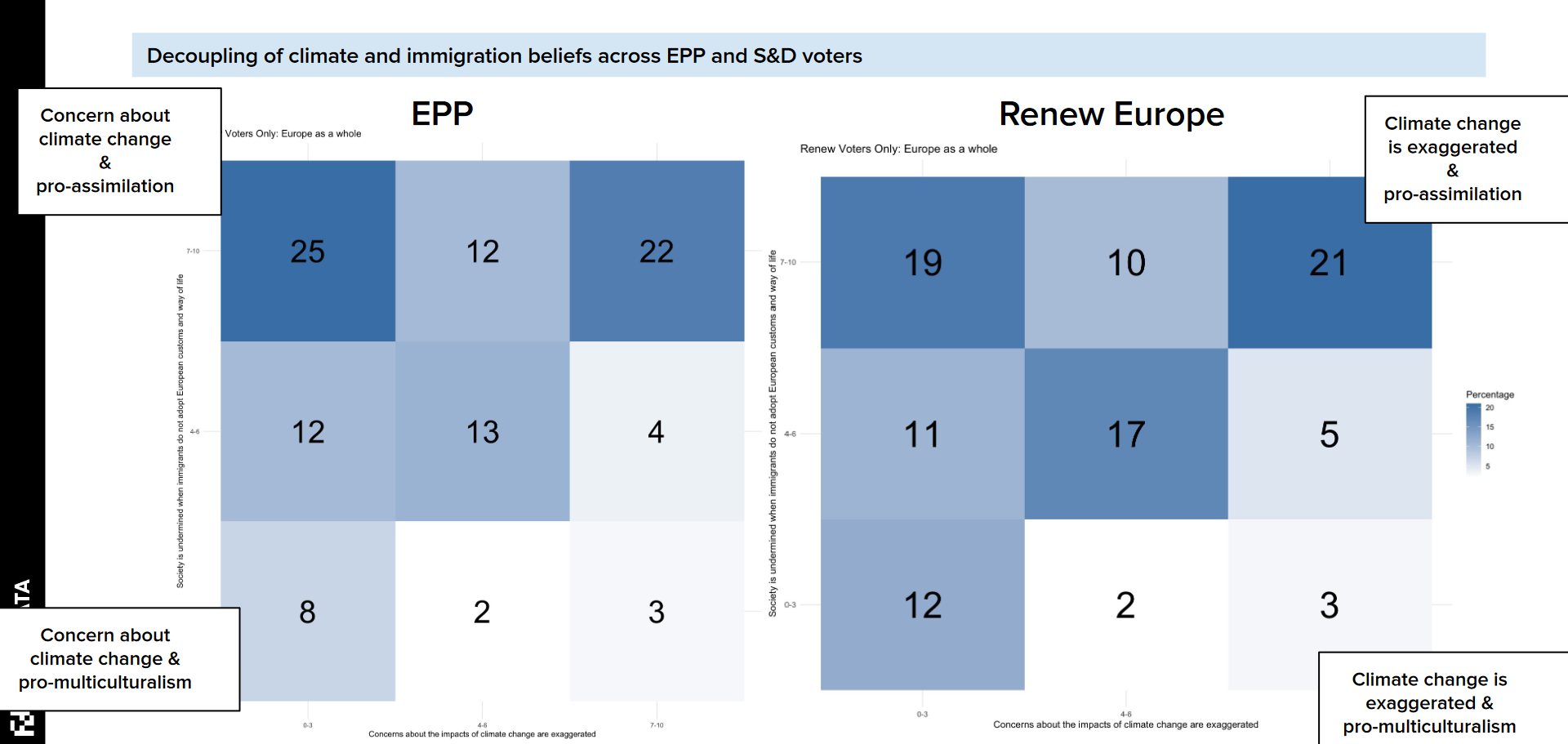Voters demand climate remains high on political agenda

Picture Alliance
It has been frequently noted in the aftermath of the European elections that climate policy issues were less on the election agenda than in 2019.
That may be true. But it is also true that a broad electoral majority is in favour of appropriate political responses to the climate crisis: support for more effective measures is polling high in many EU countries and among supporters of almost all (relevant) German parties. This is shown in several EU-wide and national surveys, as well as our own Germanwatch survey, which we commissioned together with DNR and WWF.1
Parties should take this into account and not neglect climate protection during the next legislature of the European Parliament. Otherwise, they will lose votes.
The majority of Europeans and Germans still want decisive political actions to speedily curb global warming. This is evidenced by the Eurobarometer released shortly before the European elections: across Europe, 'climate and the environment' ranks second on the priority list for the upcoming legislative period (chart p. 51 report).
This picture corresponds with a series of studies conducted over recent months.

Climate remains high on the priority list, not only for left leaning voters: Exit polls from this year’s election have shown that the topic was important also for conservative voters all across the EU. In the centrist parties which form the European Parliament groups European People’s Party (EPP) and Renew Europe (RE) – views are more or less unified on a conservative stance towards migration (especially within EPP), but a majority of voters also share a high or at least moderate level of concern about climate change:

Population wants effective climate policy
Does this also mean that people support more ambitious policies? For a majority of people, including conservative voters, the answer is yes: The study 'Debunking the Backlash – Uncovering European Voters’ Climate Preferences' (Hertie School/Jacques Delors Centre) analysing attitudes in Poland, France, and Germany shows that a majority in all three countries are in favour of more ambitious climate policy.
Around 30% of respondents in Germany are against a more ambitious climate policy, with similar figures in Poland and 23% in France (p. 2fff). The idea of a common EU climate investment fund enjoys considerable support among respondents in all three countries, provided it follows the priorities they are in favour of. This applies in Germany to supporters of the Greens (72%), SPD (61%), and Left (57%), as well as the CDU/CSU (51%) and FDP (49%) (p. 11).
Around 60% of respondents in Germany already feel that they are personally negatively affected by climate change or expect negative effects in the next five to ten years. What becomes clear as well: the widespread scepticism towards carbon pricing advocated by most parties diminishes significantly with targeted compensation; payments to low-income households in particular is popular. This is particularly relevant ahead of the 2027 launch of the EU Emissions Trading Scheme for buildings and transport, which will quickly lead to significantly higher prices for CO2 emissions in these applications.
In our own in depth survey, we confirm these findings: A majority in favour of consistent climate protection includes the centre-right parties. Main results include:
- The EU should take more responsibility: 40% of people think the EU should take more responsibility for climate protection in the world, while only 15% think too much is being done (with 21% satisfied). Relative majorities in favour of more EU responsibility for climate protection can be seen among voters who would consider voting for the CDU/CSU (33% vs. 14% who think that the EU is already doing too much), as well as among potential voters of the SPD (54% vs. 4%), FDP (47% vs. 14%), Greens (72% vs. 1%), and Left (57% vs. 8%), but also BSW (33% vs. 22%).
- Climate protection is viewed positively: 28% of people believe that stronger climate protection by the EU is predominantly positive, compared to 12% who consider it as a negative. 36% see both pros and cons. This tendency can be observed in how 28% of CDU/CSU voters consider climate protection positively compared to the 11% who see it negatively, SPD (45% positive vs. 3% negative), Left (42% vs. 3%), FDP (30% vs. 13%), and Greens (52% vs. 2%), but also BSW (21% vs. 17%).
- There was particularly strong agreement with the following statements, among others:
- Companies that behave in a way that is harmful to the environment or climate should be taxed or penalised more heavily (58% support in favour including a majority of potential centre-right CDU/CSU and FDP voters)
- Subsidies or government funding should be awarded relative to how climate friendly companies are (55% total support, including more than 60% respectively of potential centre-right CDU/CSU and FDP voters)
- Infrastructure should be designed in a climate-friendly manner / Aviation should no longer be favoured over rail / The European long-distance train network should be expanded and the range of long-distance trains should be significantly improved (53-55% in favour across these questions, including a majority in potential centre-right CDU/CSU and FDP voters)
- Financial support to lower-income households for climate policies, for example to change the heating system (58% on average, with a majority of potential CDU/CSU and FDP voters)
- Financial incentives for the reduction of resource use should be applied (more than 48% in favour across CDU/CSU, FDP, SPD, Greens)
For political parties, this data (in tandem with the physical and social reality) demonstrates that they must offer policies promoting a socially just route to climate neutrality in order to be electable.
The new European Parliament and the next European Commission must promote these environmentally conscious concepts which endure despite the shift in election results.
This blog post was also published on Emissions Trading Extra, on 19 June 2024. It is a shorter, slightly adapted English version of the German post on our website.
1 Poll conducted by Allensbach in February. 1.053 face-to-face-interviews were held with a representative share of society above 16 years of age.
Author(s)Charly Heberer |
|
CitationHeberer, C., 2024, Voters Demand Climate Remains High on Political Agenda: Climate Issues Remain a Key Demand for Europeans, Despite a Shift to More Right Wing Parties. |


